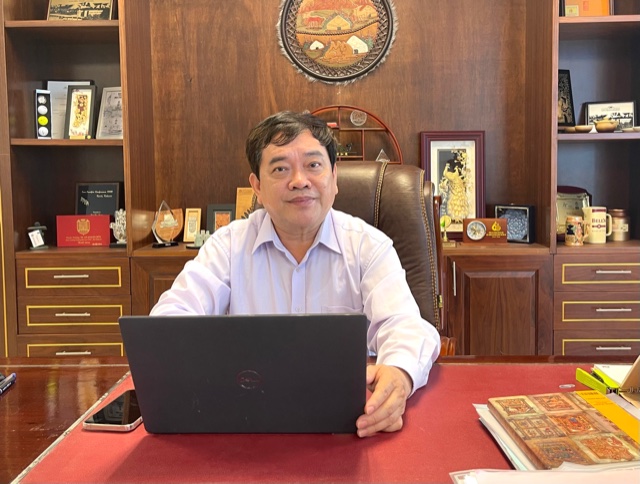.jfif) Opinion
Opinion


|
| Prof. Dr Trần Thọ Đạt, a member of the Prime Minister's Economic Council. Photo baochinhphu.vn |
Prof. Dr Trần Thọ Đạt, a member of the Prime Minister's Economic Council, discusses Việt Nam's socio-economic performance in the first six months of 2021.
How has the economy fared in the first half of 2021 compared to last year?
In spite of a fourth outbreak of the novel coronavirus, the economy has been doing well. GDP for the second quarter increased by 6.61 per cent from the same period last year, bringing the first half of 2021's GDP to a positive 5.64 per cent increase.
This is in stark contrast with the first half of 2020's GDP growth, which was 1.8 per cent as major cities and provinces went into social distancing mode. Inflation control is another area where Việt Nam has performed well. Where some other advanced economies have been struggling, Việt Nam has managed to keep inflation as low as 1.47 per cent during the first six months of 2021. Although, this figure will likely climb up a bit toward the end of the year.
So far, the country has been able to regulate its own pricing for essential goods and services including medicine and education. Manufacturing has still maintained 10 per cent growth even after major outbreaks of the virus have severely disrupted production in the country's industrial heartlands such as northern provinces of Bắc Ninh and Bắc Giang.
Investment activities have remained largely uninterrupted with the industry reporting a seven per cent growth across three major sectors: public, private and FDI.
Despite some setbacks, the country still managed to achieve a 30 per cent growth in export turnover. While we have seen a deficit of almost US$1.5 billion during the first six months of 2021, it will likely balance out in the long run as the economy recovers.
What are the objectives of the second COVID-19 support package?
The country was hit especially hard last year with our CPI going into the negative. Income for millions of households was affected with millions of jobs lost. In response, the Government is to roll out a second support package of VND27 trillion ($1.17 billion).
The package is designed to get the economy back on track and provide aid to affected households. For the first time, informal workers will also be eligible for aid. This is in line with the country's strategy in dealing with COVID-19, which aims to lend support to everyone.
There have been concerns over the first support package, which is 22 per cent disbursed. It is time for us to reconsider the targeted beneficiaries and possibly several changes in light of recent developments.
How important are COVID-19 vaccines to Việt Nam's economic recovery?
The Government has set aside VNĐ14 trillion to purchase COVID-19 vaccines because it understands the vaccine is key to a fast economic recovery. The faster we vaccinate the population the faster our economy will get back on track.
Vaccine will also play a key part in cutting back on Government spending, especially in light of recent outbreaks which has placed great pressure on the nation's coffers as tens of thousands of households must go into social distancing mode and quarantined areas.
The virus has forced numerous innovations in traditional industries including real estate, hospitality and tourism. We can expect major changes to take place in the near-future thanks to those innovations.
Việt Nam has set a target to vaccinate half a million people a day and achieve herd immunity by the end of the year. This is, of course, a very optimistic estimate as we must ensure an ample and uninterrupted supply of vaccines.
The government's current GDP target remains at 6.5 per cent, half a percentage point higher than what the National Assembly asked for. In order to meet this target, GDP growth for the rest of the year must stay above 7 per cent, which is still feasible if we managed to secure enough vaccines. – VNS




